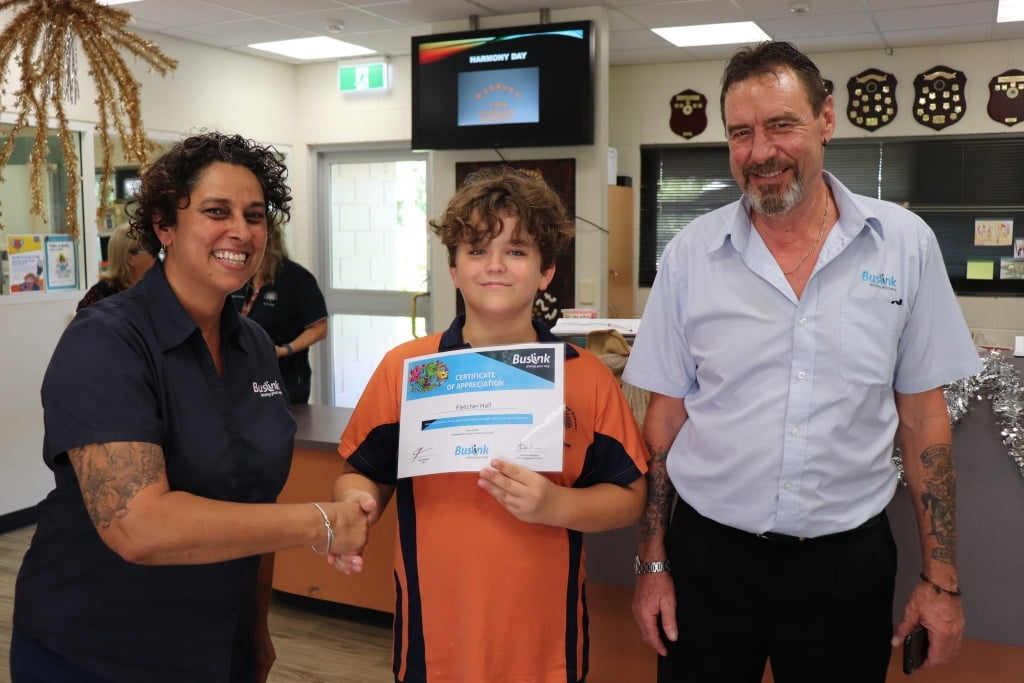With the school year now underway, Buslink NT is gearing up to continue school education programs aimed at reducing anti-social behaviour – which have seen a 50% overall reduction in the need to issue Warning and Banning Notices on school buses.

Tamara Boehme and Scott Riley from Buslink presenting a Buslink Appreciation Award to Fletcher Hall at Girraween Primary School
Through collaboration with schools, we’ve seen a 50% reduction in Warnings issued over the last three years , which appears to directly correlate with a reduction in the issuing of Banning Notices.
The set of programs take a three-tier approach to decreasing anti-social behaviour, focusing on both long term solutions and the need to deliver safe and hassle free journeys passengers expect and deserve.
The program is run by Buslink School Engagement Officer Tamara Boehme who says that for the long term, we recognise that children learn from example, which led to the creation of the Safe Bus Travel Presentation program. Through the program, engagement officers visit schools with our drivers to teach children about appropriate behaviour, as well as the impact and consequence of inappropriate behaviour.
By aiming the programs at Primary school aged students including Transition, and reinforcing this annually, we are gradually making a long term impact; and are fortunately already seeing results.
Our message is that appropriate behaviour gains positive attention.
The feedback from school principals has been encouraging, with some schools seeing an 80% reduction in Warnings and Bannings, so we look forward to continuing the programs in the 2020 school year.
The strategy has seen a marked reduction in the issuing of Warning and Banning Notices, the third last-resort program aimed at minimising the impact of repeated anti-social behaviour and the effects on other passengers including students.
We cannot solve all the problems stemming from anti-social behaviour, but we do hope that by doing our bit we can reduce the impact it has on our customers and have a positive influence on the children we engage with. It takes consistent and persistent effort, and through continued collaboration we hope to see the numbers continue to drop over time.